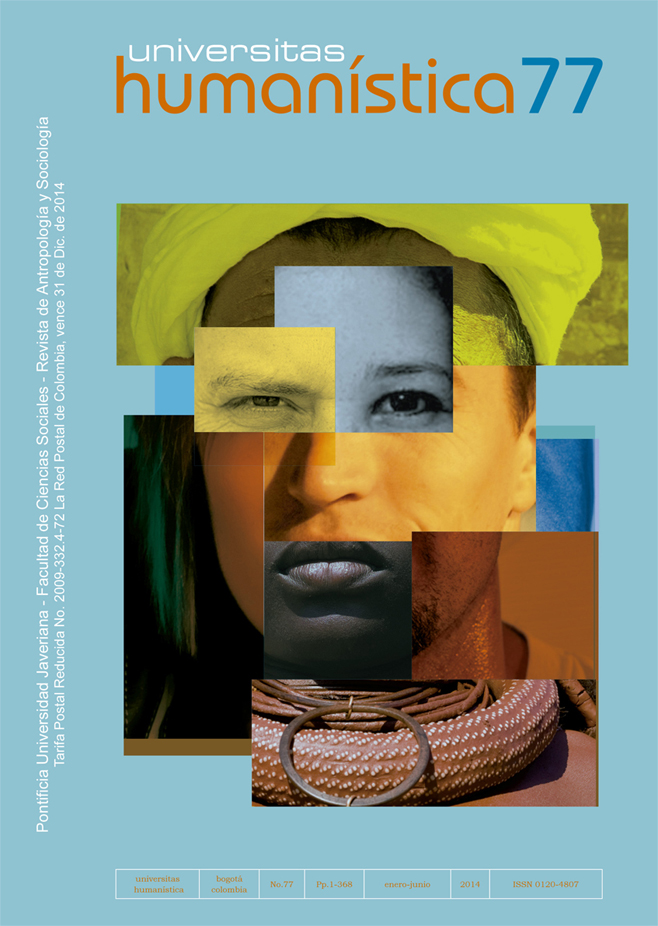Resumen
El presente artículo trata sobre el proceso de etno-racialización en la era multicultural en el contexto específico de Colombia actual. Se toma como base un amplio marco teórico (racialización, racismo estructural, multiculturalismo, interseccionalidad, racismo cotidiano), el análisis de fuentes primarias y entrevistas en profundidad realizadas con jóvenes afrodescendientes de Bogotá para argumentar que el multiculturalismo, tal como ha sido desarrollado al nivel legislativo y de políticas públicas en Colombia, no reta los fundamentos racializados del poder ni de las relaciones sociales y que existe una variedad de mecanismos que buscan defender el lugar de privilegio de lo blanco-mestizo. Sin embargo y simultáneamente, sugerimos que el multiculturalismo proporciona una serie de posibilidades para cuestionar el sistema social y político racializado y para desarrollar estrategias de resistencia.

La revista Universitas Humanística se encuentra registrada bajo la licencia Creative Commons Reconocimiento 4.0 Internacional. Por lo tanto, esta obra se puede reproducir, distribuir y comunicar públicamente en formato digital, siempre que se reconozca el nombre de los autores y a la Pontificia Universidad Javeriana. Se permite citar, adaptar, transformar, autoarchivar, republicar y crear a partir del material, para cualquier finalidad (incluso comercial), siempre que se reconozca adecuadamente la autoría, se proporcione un enlace a la obra original y se indique si se han realizado cambios. La Pontificia Universidad Javeriana no retiene los derechos sobre las obras publicadas y los contenidos son responsabilidad exclusiva de los autores, quienes conservan sus derechos morales, intelectuales, de privacidad y publicidad.
El aval sobre la intervención de la obra (revisión, corrección de estilo, traducción, diagramación) y su posterior divulgación se otorga mediante una licencia de uso y no a través de una cesión de derechos, lo que representa que la revista y la Pontificia Universidad Javeriana se eximen de cualquier responsabilidad que se pueda derivar de una mala práctica ética por parte de los autores. En consecuencia de la protección brindada por la licencia de uso, la revista no se encuentra en la obligación de publicar retractaciones o modificar la información ya publicada, a no ser que la errata surja del proceso de gestión editorial. La publicación de contenidos en esta revista no representa regalías para los contribuyentes.


